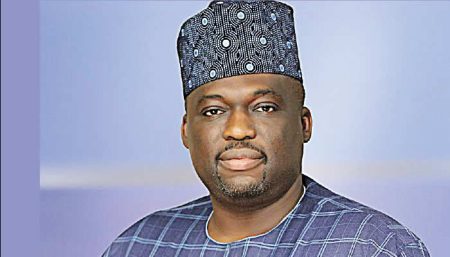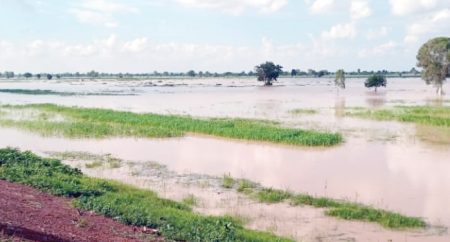The Pharmaceutical Wholesalers and Distributors Association of Nigeria (PWDAN) has issued a clarion call to the Federal Government, urging the implementation of the 2012 National Drug Distribution Guidelines (NDDG). This policy, PWDAN argues, holds the key to addressing the persistent challenge of fake drug proliferation in Nigeria. The call to action comes in the wake of recent government clampdowns on open drug markets, a move that exposed vulnerabilities in the existing drug distribution system and, ironically, exacerbated the very problem it sought to solve. PWDAN Chairman, Ogheneochuko Omaruaye, emphasized the NDDG’s importance, highlighting its comprehensive framework outlining the responsibilities of every stakeholder within the pharmaceutical supply chain. The non-implementation of this crucial policy, he argues, has severely hampered Nigeria’s fight against counterfeit drugs. The closure of open drug markets, while intended to curb illicit drug trade, has inadvertently disrupted legitimate supply chains, underscoring the urgent need for a structured and regulated distribution system. The NDDG offers a blueprint for just such a system, promising enhanced medicine security, improved public health outcomes, and greater national resilience.
PWDAN’s advocacy for the NDDG reflects a long-standing commitment to a transparent and secure pharmaceutical supply chain. The association views the current situation as a critical juncture, presenting both a challenge and an opportunity for transformative change. The recent market closures, although disruptive, have laid bare the inadequacies of the current system and highlighted the urgent need for reform. Omaruaye stressed the importance of collaboration between the government and the private sector, warning that the private sector risks being sidelined if it fails to embrace the existing structured framework. This, he cautions, could undermine the collective efforts to ensure medicine security, a matter of national imperative. The association views itself as a vital bridge connecting all stakeholders, including regulators, manufacturers, wholesalers, distributors, and retailers, to work in harmony towards achieving this shared goal.
The Chairman’s words resonate with a sense of urgency, conveying a strong belief that medicine security is not solely the government’s responsibility, but a shared national imperative requiring collective action. He called upon all stakeholders – regulators, manufacturers, wholesalers, distributors, and retailers – to work in concert, leveraging PWDAN as a unifying force. This collaborative approach, he believes, is essential to achieving a secure and resilient pharmaceutical supply chain that protects public health. PWDAN’s call to action is not merely a plea for policy implementation, but a call for shared responsibility and a united front against the threat of counterfeit drugs. It underscores the critical role of effective regulation, collaborative partnerships, and a commitment to transparency and accountability in ensuring the safety and efficacy of medicines reaching the Nigerian populace.
Professor Mojisola Adeyeye, Director General of the National Agency for Food and Drug Administration and Control (NAFDAC), echoed PWDAN’s sentiments, emphasizing NAFDAC’s ongoing commitment to safeguarding public health through stringent regulations. She highlighted the agency’s multi-pronged approach, which includes strengthening good distribution practices, intensifying post-market surveillance, conducting routine inspections, digitalizing regulatory systems, leveraging technology for supply chain traceability, and encouraging industry self-regulation through collaborative partnerships. These measures, she explained, are designed to ensure a secure and reliable pharmaceutical supply chain. Adeyeye stressed the importance of collective responsibility, stating that achieving a secure pharmaceutical supply chain requires collaborative efforts from all stakeholders, including manufacturers, importers, wholesalers, and distributors. She urged distributors to prioritize compliance, professionalism, and strategic partnerships within the drug distribution ecosystem.
Adeyeye’s emphasis on partnership underscores the importance of a multi-stakeholder approach to tackling the complex issue of drug security. The implementation of robust regulatory frameworks, coupled with industry-wide collaboration and a commitment to best practices, is crucial in establishing a secure and reliable pharmaceutical supply chain. The call for compliance and professionalism signals NAFDAC’s resolve to uphold stringent standards within the industry. By fostering strategic partnerships and promoting self-regulation, the agency aims to create a robust and sustainable ecosystem that safeguards public health. NAFDAC’s commitment to leveraging technology for supply chain traceability reflects a forward-looking approach to drug regulation, utilizing digital tools to enhance transparency and accountability within the pharmaceutical sector.
Adding their voices to this crucial conversation, Ibrahim Ahmed, Registrar of the Pharmacy Council of Nigeria (PCN), and Ayuba Ibrahim, President of the Pharmaceutical Society of Nigeria (PSN), expressed their unwavering support for a safe drug distribution network. They pledged their organizations’ continued commitment to achieving this vital goal, aligning with PWDAN and NAFDAC in their pursuit of a secure and regulated pharmaceutical landscape. These endorsements from key regulatory bodies further solidify the collective commitment towards establishing a robust drug distribution system in Nigeria. Their pledges underscore the recognition that a secure and efficient drug distribution system is critical to protecting public health and promoting national resilience. The united front presented by PWDAN, NAFDAC, PCN, and PSN underscores the urgent need for collaborative action and the importance of implementing the NDDG to safeguard the Nigerian pharmaceutical landscape. This unified front, committed to transparency, accountability, and stringent regulation, aims to create a pharmaceutical ecosystem that effectively combats the threat of counterfeit drugs and prioritizes the health and well-being of the Nigerian populace.












